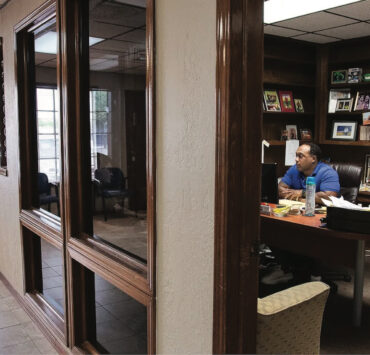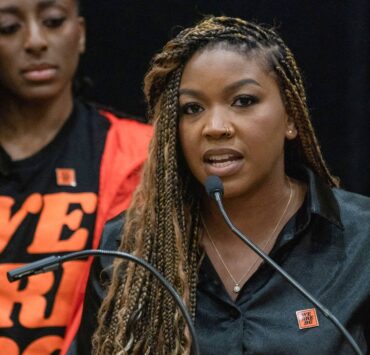Oklahoma lawmakers on Wednesday passed almost $323 million in water infrastructure, behavioral health and electronic medical records projects funded by federal pandemic relief dollars on to an upcoming special session of the Legislature.
The House and Senate are expected to take up the latest pandemic relief spending bills by late September, but legislative leaders have not yet settled on the exact dates.
Meanwhile, some lawmakers expressed frustration with what they called the executive branch’s continued slow pace of sending money to projects already approved. The state has $1.87 billion to spend under the American Rescue Plan Act. Some projects approved last December have yet to receive funding, said Sen. Chuck Hall, R-Perry.
“I don’t understand how when the Legislature directs an appropriation, it doesn’t get done immediately,” Hall said. “We are all concerned about mishandling or clawbacks related to these ARPA funds, but we have done our due diligence. These projects have gone through the (online) portal, through working groups, to the joint committee, to the floor of the House and Senate and to the governor and are ready to deploy.”
The governor’s office said nobody from the executive branch is holding up federal relief funds. Some of the previously approved projects have enactment dates of Sept. 1, while others went into effect 90 days after they became law if they didn’t have an emergency clause, said Carly Atchison, Stitt’s communications director.
Atchison said the Office of Management and Enterprise Services has been working with state agencies to get grant agreements in place to ensure the state complies with federal guidelines.
“The Stitt administration is committed to following all federal guidelines,” Atchison said.
The Legislature in May changed its approval process for pandemic relief projects and set up a new fund to capture the federal relief dollars. That meant relief projects approved late last year didn’t have a funding source and needed to be part of the new legislative appropriations process through approved special session bills, said Caden Cleveland, a spokesman with the Office of Management and Enterprise Services.
Behavioral Health, Water Projects Approved
In Wednesday’s Joint Committee on Pandemic Relief Funding, lawmakers in separate votes unanimously approved 10 projects totaling $323 million. The Legislature earlier approved more than $200 million in various projects funded by the federal relief dollars.
House Speaker Pro Tempore Kyle Hilbert, R-Bristow, said lawmakers would like to get the “lion’s share” of federal pandemic relief funds approved in the second special session, which is devoted to pandemic relief funding. That special session would end automatically in mid-November if lawmakers don’t dissolve it earlier.
“With inflation, things are getting more expensive, so we need to get these projects out the door,” Hilbert said.
He said lawmakers and legislative staff have been working since the end of the regular session in May on pandemic relief projects. Ideally, he’d like to see their work completed on a big chunk of the projects before the next regular session starts in February.
The projects approved Wednesday were:
* $87 million to replace Griffin Memorial Hospital in Norman, which dates to the 1890s and is the state’s largest psychiatric hospital. The replacement would add another 100 beds, bringing the total staffed beds to 275 for adults and 55 for adolescents.
* $38 million to add 50 beds to the 56 existing beds at the Tulsa Center for Behavioral Health. That renovation and expansion project already has $26 million in funding commitments from other donors.
* $50 million to the Oklahoma Water Resources Board for a grant program for water infrastructure projects. This is the second part of a $100 million grant program. The Legislature earlier approved the other $50 million as the water board worked on the requirements for the grant program.
* $44 million to the University Hospitals Authority for an electronic health records system for OU Health.
* $35 million to Oklahoma City to relocate a 60-inch water transmission line that serves more than 400,000 city residents. If not relocated, the water line would be inside a pending expansion of Tinker Air Force Base, causing security and safety issues for ongoing maintenance and repairs. The city is using its own money for a nearby road expansion related to Tinker’s growth.
* $26 million to the Oklahoma State Department of Health for an electronic health records system to replace the paper files and faxes used at county health departments across the state.
* $22.15 million to the Oklahoma National Guard for a holistic health center that would serve the physical and mental needs of the National Guard and state first responders. Once built, it would be staffed using federal funds and also provide family services and sexual harassment and assault services.
* $12 million for a matching program for regional tribal water infrastructure projects. The Legislature earlier approved $20 million in matching funds for tribal water projects.
* $6.23 million to the Administrative Office of the Courts for several projects, including electronic case filing, disaster recovery information technology services and video-conferencing systems and equipment. It also includes money for court interpreters and translators.
* $2.52 million to the Oklahoma Department of Public Safety for two mobile response units to help first responders like troopers, firefighters and EMS personnel deal with work-related trauma. The mobile units would allow for a secure place to debrief first responders at disaster sites and provide trauma counseling.
Additional projects will be taken up in working groups in the next few weeks, and lawmakers plan to convene another joint pandemic relief committee on Sept. 20, Hilbert said. The House and Senate will put those projects into “shell” bills already deep into the legislative process during the special session expected at the end of September. That means the full House and Senate just need to approve the bills before sending them to the governor for approval.
The state has until the end of 2024 to allocate the pandemic relief funding, and the money must be spent by the end of 2026. More than 1,400 applications were made to the state for the relief funds, totaling almost $18 billion. Oklahoma Watch has compiled a database of the applications, which can be searched here.
Paul Monies has been a reporter with Oklahoma Watch since 2017 and covers state agencies and public health. Contact him at (571) 319-3289 or pmonies@oklahomawatch.org. Follow him on Twitter @pmonies.











